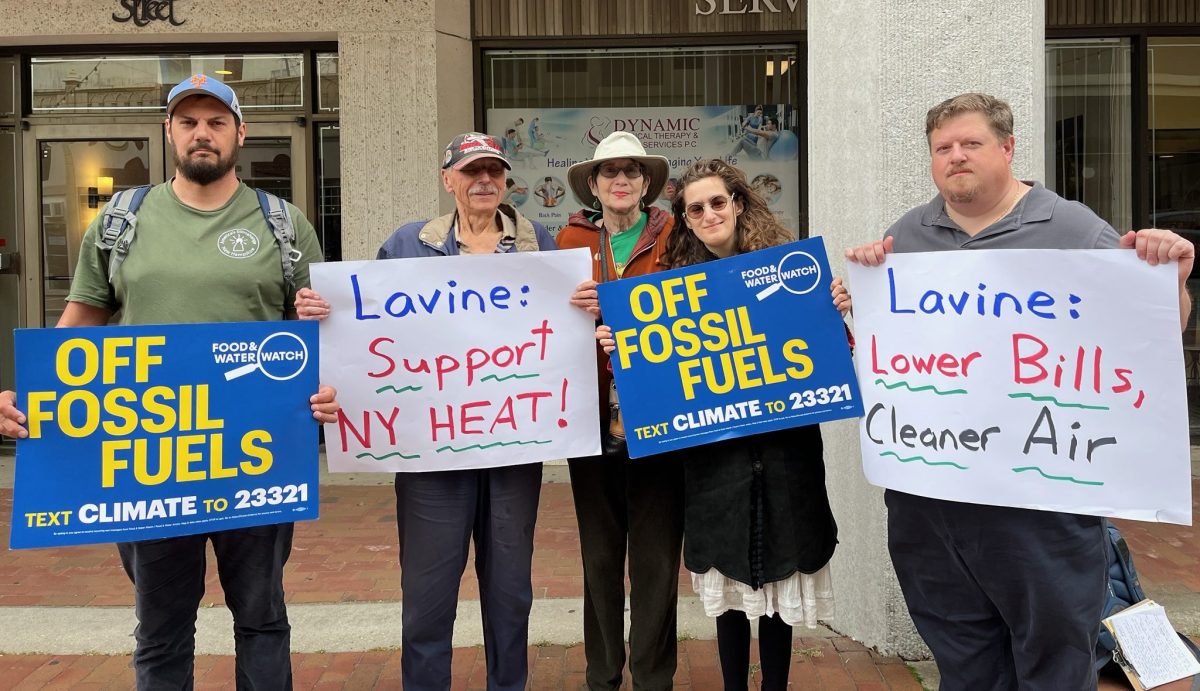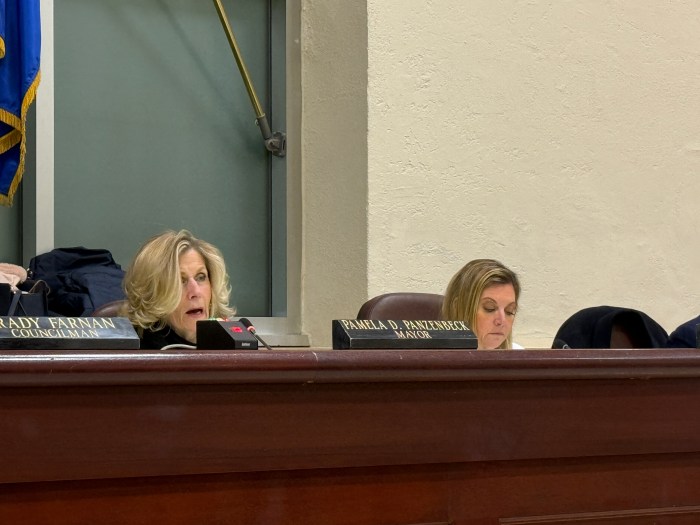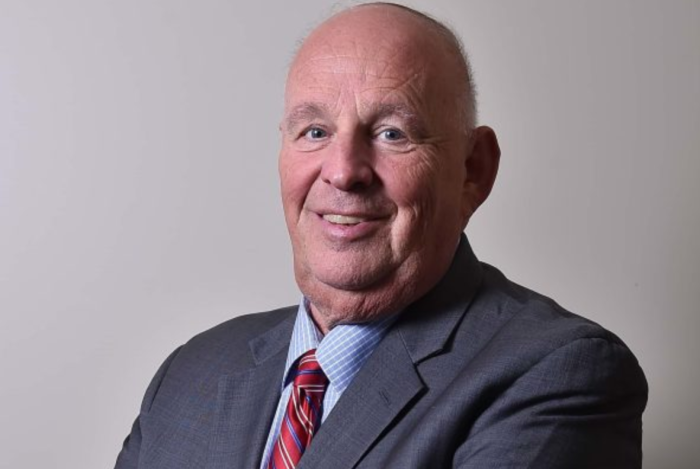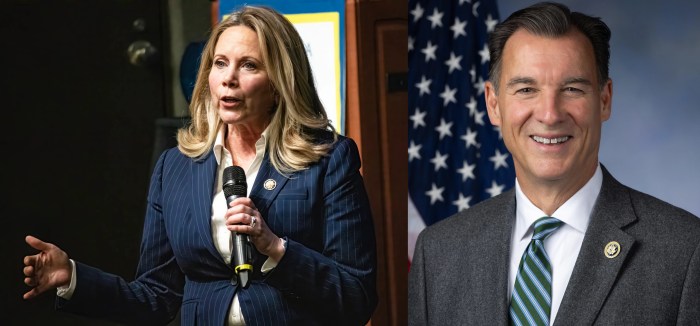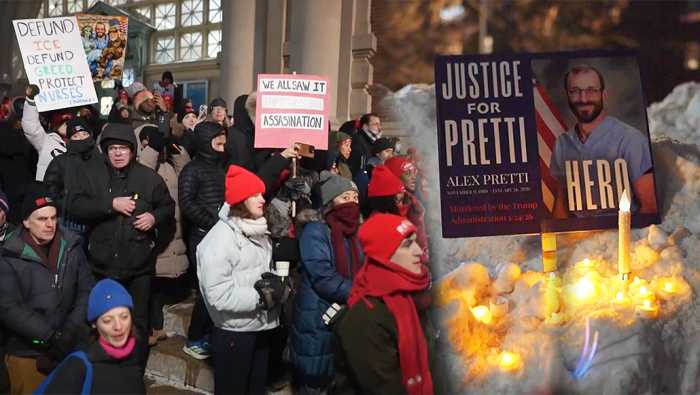Climate advocates took to state Assembly Member Charles Lavine’s office in Glen Cove to rally for his co-sponsorship of the New York Home Energy Affordable Transition Act, typically referred to as the HEAT Act.
Although turnout was small, the rally held on Wednesday, May 28, garnered support from advocates and constituents.
“We’re urging Assembly Member Lavine to co-sponsor and support the bill,” said Eric Weltman, senior organizer with the environmental nonprofit leading the rally, Food and Water Watch.
He said the organization has made the HEAT Act its “top climate priority” because it would lower energy bills while cutting subsidies for “frac grass” and fossil fuels.
“This bill is a win-win,” Weltman said.
The HEAT Act was passed by the state Senate as a stand-alone bill in 2023 and 2024 and was included in the Senate’s budget proposal this year, but has yet to be passed. If the Senate and Assembly pass the bill, New Yorkers’ energy bills, such as those from Con Edison and National Grid, would be capped at 6% of their income.
“I will save ratepayers billions of dollars every year and will make significant progress toward our climate goals at a time when we’re risking stagnation or worse. The status quo of our utility gas system is expensive, old, leaky, cold and dangerous,” said state Sen. Liz Krueger when she reintroduced the bill this February.
Weltman said that Food & Water Watch has led rallies in front of numerous assembly members’ offices throughout Nassau County and the city. He said the rally was not a protest against Lavine, but an encouragement to do champion the bill.
Weltman said the nonprofit works with many local organizations with similar concerns and goals. He noted that the rally was joined by Joe Sackman, the executive director of the Long Island Progressive Coalition, who is one of Lavine’s constituents in Hicksville.
“Long Island has a lot of valid concerns about climate change and the environment,” he said.
Lavine said he spoke with the nonprofit’s representatives.
“I had a cordial and constructive meeting in my office yesterday with HEAT Act supporters,” he said. “I fully share their intense fear of global heating caused by greenhouse gas emissions and counseled them that they needed greater statewide grassroots support for the bill to pass in both legislative houses.”
“While I told them that I would vote in favor of the bill if it got to the floor, I also suggested that several of the measures included in the lengthy and complex bill should be the subject of narrower bills that I believe have widespread legislative support,” Lavine said.




